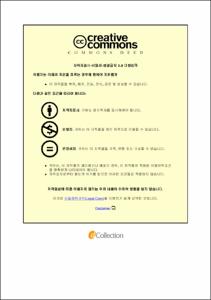거꾸로 수업을 특성화고 식품과학교과에 적용하기 위한 수업-설계 개발 연구
- Abstract
- Lesson design development research to apply Flipped Learning to characterization high school food science subjects
Kim, Hyo-Jin
Graduate School of education,
Pukyung National University
Abstract
The most important feature of the revised education curriculum in 2015 will be to emphasize the process rather than the results and increase the discussion · participation type lessons. In other words, instead of injecting knowledge, it is necessary to introduce Flipped Learning that can reconstruct knowledge through their own experiences.
Currently, studies on introduction of Flipped Learning are active in subjects such as national languages, English, mathematics, science, etc. there are no cases in which Flipped Learning is introduced in specialized subjects of specialized high school subjects. We will try to find a solution for applying it to food science subjects.
In this study, we propose a method to apply Flipped Learning, which is capable of "interactions through communication," to the "high school food science subject" in order to acquire "applicable knowledge" We have designed a teaching-learning design model and proposed a lesson guidance plan focusing on "preservation of food", which is a sub-section of the food science subject.
The results of the professor - design development study to apply Flipped Learning to the characterizing high school food science subject are as follows.
First, we compare and analyze cases where Flipped Learning were applied to characterizing high school and humanities. As a result of the analysis, Characterized High School was able to know that improving practical skills necessary for vocational ability, mainly human beings, and progressing Flipped Learning mainly on assignment selection examination. Secondly, we currently analyzed two models presented by applying Flipped Learning to Korean school classes and designed a professor · learning model for Flipped Learning to apply to the characterization high school food science subject. Third, the professor · learning model of the reverse class designed in this paper was applied to the "food preservation" section of food science subjects. 3 As a result of designing a professor · learning guidance proposal for reverse teaching over chassis, practical type learning based on job function that can be used at the work site according to the purpose of characterization high school is possible.
In this study, we proposed a method to characterize Flipped Learning and apply it to the food science curriculum. However, there is a limitation in that it is limited to literature research, teaching and design development We will apply the Flipped Learning teaching and learning model designed in this paper and the teaching and learning guidance plans to the subjects of food science in the future and modify and develop them while the long-term class is progressing.
- Issued Date
- 2017
- Awarded Date
- 2017. 8
- Type
- Dissertation
- Publisher
- 부경대학교
- Alternative Author(s)
- Lesson design development research to apply Flipped Learning to characterization high school food science subjects
- Affiliation
- 부경대학교 교육대학원
- Department
- 교육대학원 수산교육전공
- Advisor
- 강버들
- Table Of Contents
- I. 서론 1
1. 연구의 필요성 및 목적 1
2. 연구 문제 4
II. 이론적 배경 5
1. 거꾸로 수업 5
2. 특성화고의 현황 23
3. 2015 개정 식품가공 전문교과 교육과정 24
III. 연구 방법 32
1. 연구대상 32
2. 분석방법 33
3. 연구절차 34
IV. 결과 및 논의 35
1. 특성화고와 인문계고의 거꾸로 수업 사례 분석 35
2. 식품과학교과 거꾸로 수업 교수·학습 모형 설계 47
3. 식품과학교과 거꾸로 수업 교수·학습 지도안 설계 59
V. 결론 및 제언 79
1. 결론 79
2. 제언 81
참고문헌 82
부록 87
- Degree
- Master
- Files in This Item:
-
-
Download
 거꾸로 수업을 특성화고 식품과학교과에 적용하기 위한 수업-설계 개발 연구.pdf
기타 데이터 / 1.27 MB / Adobe PDF
거꾸로 수업을 특성화고 식품과학교과에 적용하기 위한 수업-설계 개발 연구.pdf
기타 데이터 / 1.27 MB / Adobe PDF
-
Items in Repository are protected by copyright, with all rights reserved, unless otherwise indicated.